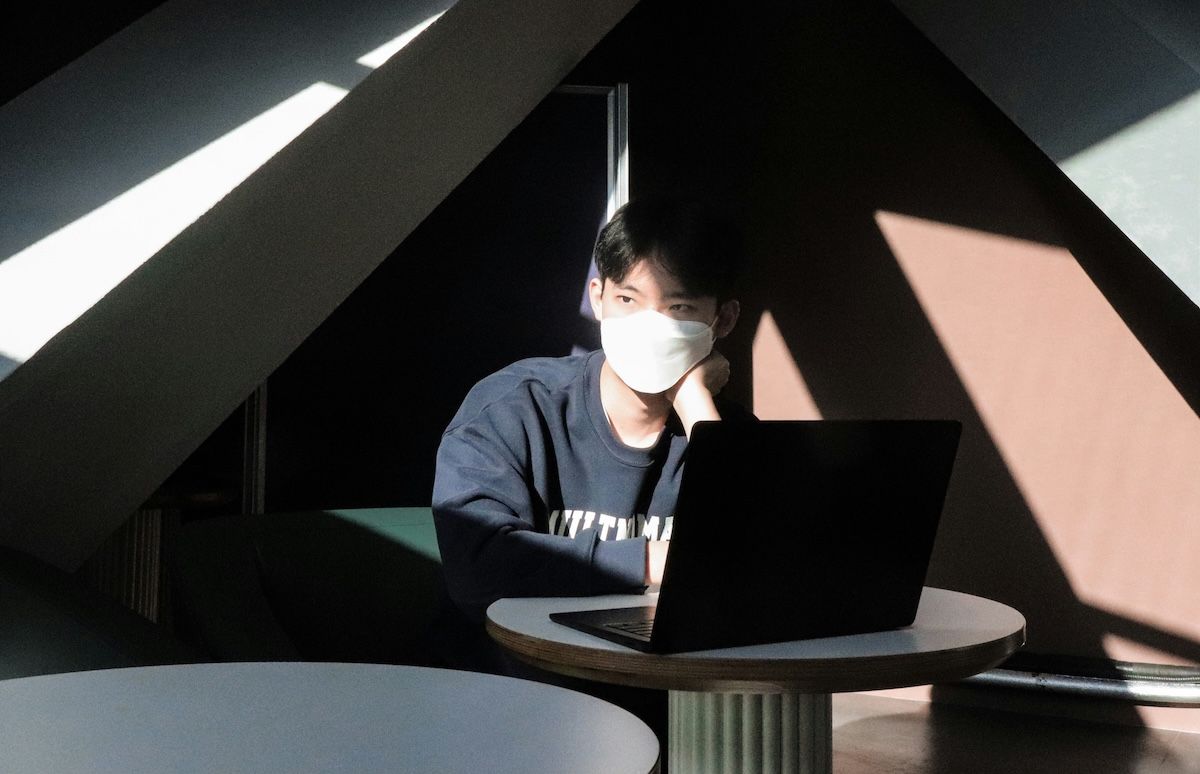Can Online Thought Field Therapy (TFT) Really Work? A Covid-Era Study in Japan Says Yes.
During the height of the covid-19 pandemic, mental health challenges skyrocketed. Anxiety, depression, and stress increased worldwide. In Japan, researchers studied whether Thought Field Therapy (TFT)—an energy-based tapping method—could offer relief in a world suddenly locked down and emotionally overwhelmed.

Their objective was to evaluate the efficacy of online TFT as a quick intervention for psychological problems. Ayame Morikawa, Masaki Fujumoto, Yuriko Kawagishi, and Tomiyo Fukagawa headed up the study. Their answer was yes—and the results were striking. The research showed that online TFT intervention was able to rapidly reduce psychological stress for a sustained period of time.
What is TFT, and how did it help during covid-19?
Thought Field Therapy (TFT) is a tapping technique. Tapping stimulates energy meridians while focusing attention on distressing emotions or symptoms.
It can be done with a trained practitioner or as a self-care technique. Unlike some other therapies, tapping does not require individuals to recall explicit details of trauma, but focuses on symptoms and feelings. Because TFT is fast, non-invasive, and easy to deliver remotely, the research team saw an opportunity to test it as an intervention during Japan’s strict covid-19 lockdown.
Study design: real people, real problems, real change
In this 2021 study, 99 participants dealing with anxiety, depression, fatigue, and somatic complaints like headaches or sleep issues took part. Nearly half reported high stress levels before treatment—four times higher than Japan’s pre-pandemic average. Of 99 original subjects, 67 fully completed the study.
Each participant completed the Brief Job Stress Questionnaire (BJSQ), which assesses psychological and physical stress, and the Subjective Units of Distress Scale (SUDS). Participants were split into two groups: one received two brief (20-minute) online TFT sessions with a trained practitioner, the other group served as the control, completing the same questionnaires but not receiving TFT. The control group was later given the opportunity to have TFT interventions and showed similar results to the initial TFT group. The sessions were personalized; instead of using a generic tapping sequence, the practitioners adapted TFT for each individual’s specific issue—whether PTSD, panic attacks, eating disorders, or pandemic-related overwhelm.
In addition, participants were offered TFT self-care resources for use between the sessions, which included instructional videos and apps.
The results: fast, measurable relief that lasted
The findings were compelling:
- High stress levels dropped from 40% to just 10% after two short TFT sessions—and went even lower (7%) at follow-up.
- Self-reported distress scores (SUDS) dropped from 7.0 to 1.5 on average.
- Anxiety, fatigue, and irritability improved most dramatically, with gains sustained at 2- and 6-week follow-ups.
Even depression and physical symptoms saw significant reductions—an impressive result for such a short, non-invasive intervention.
In summary, “pre- and post-intervention scores revealed that TFT significantly alleviated negative emotions measured by the BJSQ, including mental and physical stress reactions, irritability, fatigue, anxiety, depression, and somatic complaints.”
It’s important to note that the short sessions and variations in follow-up times limits the ability to make generalizations about the use of TFT. However, the research presented indicates that TFT tapping techniques can be effective when delivered remotely, and it shows promise as both a therapeutic intervention and a skill which can be learned for self-care to manage stress levels and boost resilience.
Why this study matters: accessibility and scalability
Many regions in the world experience shortages of skilled therapists. TFT is a rapid, effective and scalable intervention that can be delivered flexibly in traditional one-to-one therapy, group therapy, in classrooms, online via Zoom and other platforms, and for individual self-care. Because it works so rapidly and effectively, it is much less expensive than traditional psychotherapies.
This study is a powerful reminder that simple energy-based techniques can offer fast, effective support—even during global crises. It also confirms what many practitioners already know. Tapping works, and it doesn’t always require long-term therapy or in-person sessions to be effective.
For practitioners working with clients experiencing stress, anxiety, or trauma, this research, combined with many other studies, backs up the use of TFT as a legitimate, science-supported method. It’s affordable, scalable, and highly adaptable. Whether you work one-on-one, run groups, teach classes, or work online, TFT can fit into your practice with ease.
Next steps
Want to get trained in TFT? Go here.
Want to get trained in another tapping method - EFT (Emotional Freedom Techniques)? Go here.
Morikawa, A., Fujimoto, M., Kawagishi, Y. & Fukugawa, T. (2025). Thought Field Therapy intervention to improve mental health during the COVID-19 pandemic: A randomized controlled trial. Explore, 21(2), https://doi.org/10.1016/j.explore.2025.103117
Author
Ramona K. Clifton, LCSW is a licensed clinical social worker and coach with a private practice in Brooklyn, NY. She incorporates EFT, mindfulness, and a deep appreciation for individual experience and creative drive. She is a member of ACEP and the ACEP Communications Committee.
Photo by Christopher Lee on Unsplash



